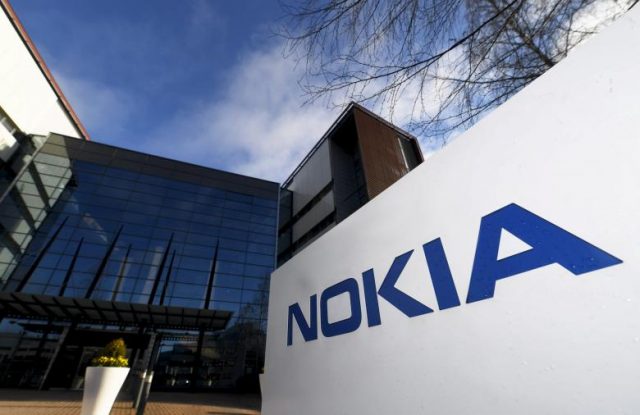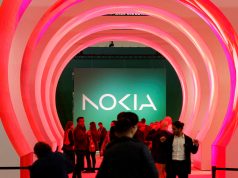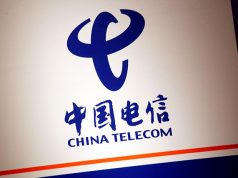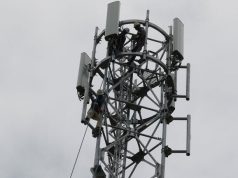
HELSINKI, FINLAND | Finnish telecom networks equipment maker Nokia reported a slowing rate of sales decline on Thursday, saying the global networks market was showing signs of recovery, particularly in North America and India.
Nokia outpaced its troubled Swedish rival Ericsson in the quarter and analysts said the Finnish company was better positioned to win future business, thanks to its recent acquisition of Franco-American rival Alcatel-Lucent.
Network gear vendors have struggled in recent years as telecom operators’ demand for faster 4G mobile broadband equipment has peaked, and upgrades to next-generation 5G equipment are still years away.
Nokia said business momentum was now improving, and reported first-quarter network sales down 6 percent from a year earlier at 4.9 billion euros ($5.3 billion) – compared with a decline of 14 percent in the previous quarter.
Ericsson on Tuesday posted a first-quarter revenue drop of 13 percent for its networks business.
“We slowed the rate of topline decline and generated healthy orders in what is typically a seasonally weak quarter for us… We saw encouraging stabilization in Mobile Networks topline,” Nokia Chief Executive Rajeev Suri told reporters in a conference call.
He said North America and India were the most encouraging regions, while Japan, South Korea and parts of Southeast Asia were also picking up.
“There are some opportunities in China… but (in general) it is clearly going to be a weak market this year,” he added.
Nokia’s group operating profit in the quarter fell 1 percent from a year earlier to 341 million euros, slightly ahead of analysts’ average forecast of 334 million euros in a Reuters poll.
Shares in the company rose 4.4 percent by 0721 GMT to their highest in 20 months.
“It is now a question of waiting for revenue stabilization and recovery… Beyond 2017, we believe the combination of a recovery in the market and execution on synergies can drive earnings power well above today’s level,” said Bernstein analysts, who rate the stock as “outperform”, in a note.
Nokia repeated that it expects its networks sales to decline in the full year, in line with the market.
Nokia’s acquisition of Alcatel-Lucent in a 15.6 billion euro ($17 billion) all-share deal last year gave it a larger fixed-line network business and made it less dependent on mobile broadband demand.
Suri said Nokia was on track to cut 1.2 billion euros of annual costs by 2018 as it integrates Alcatel.
Nokia was once known as the world’s biggest mobile phone maker, but it got caught out by the rise of smartphones and ended up selling the handset business to Microsoft in 2014.
This year, however, the Finnish company’s name is returning to the handset market as a Finnish company, HMD Global, launched new Nokia phones under a licensing deal.









